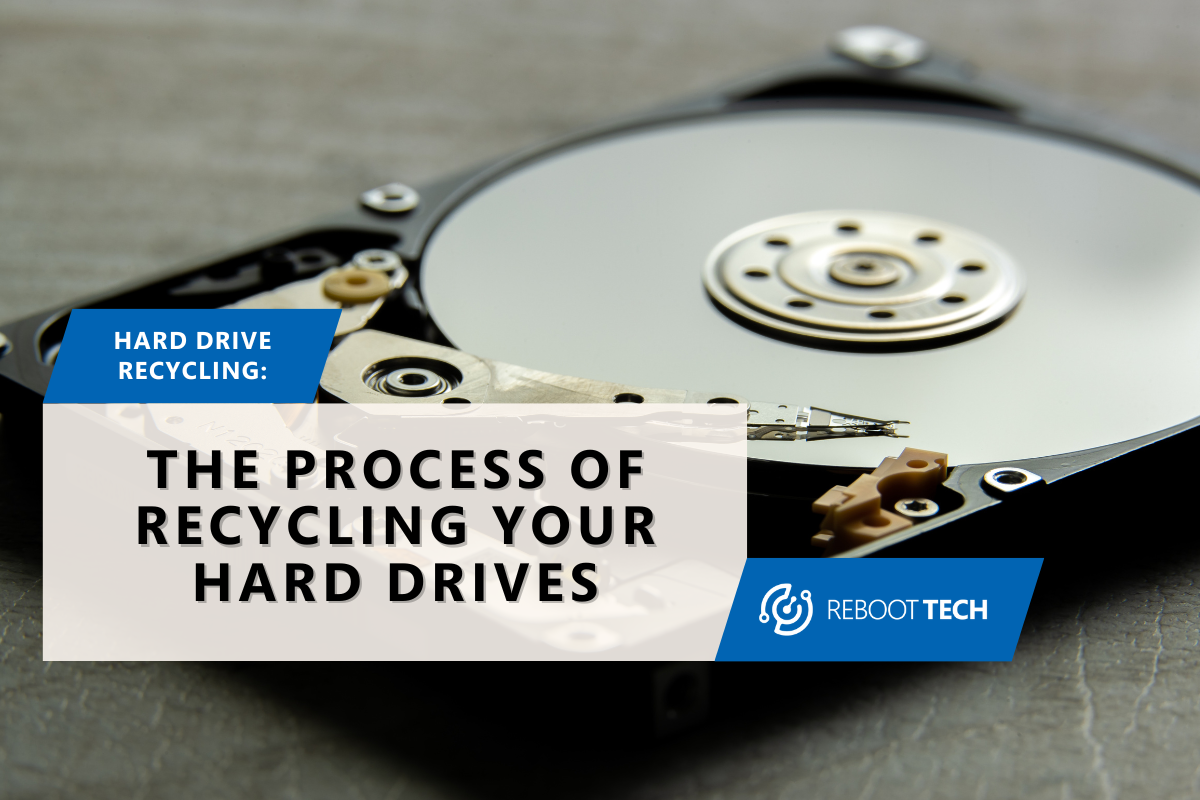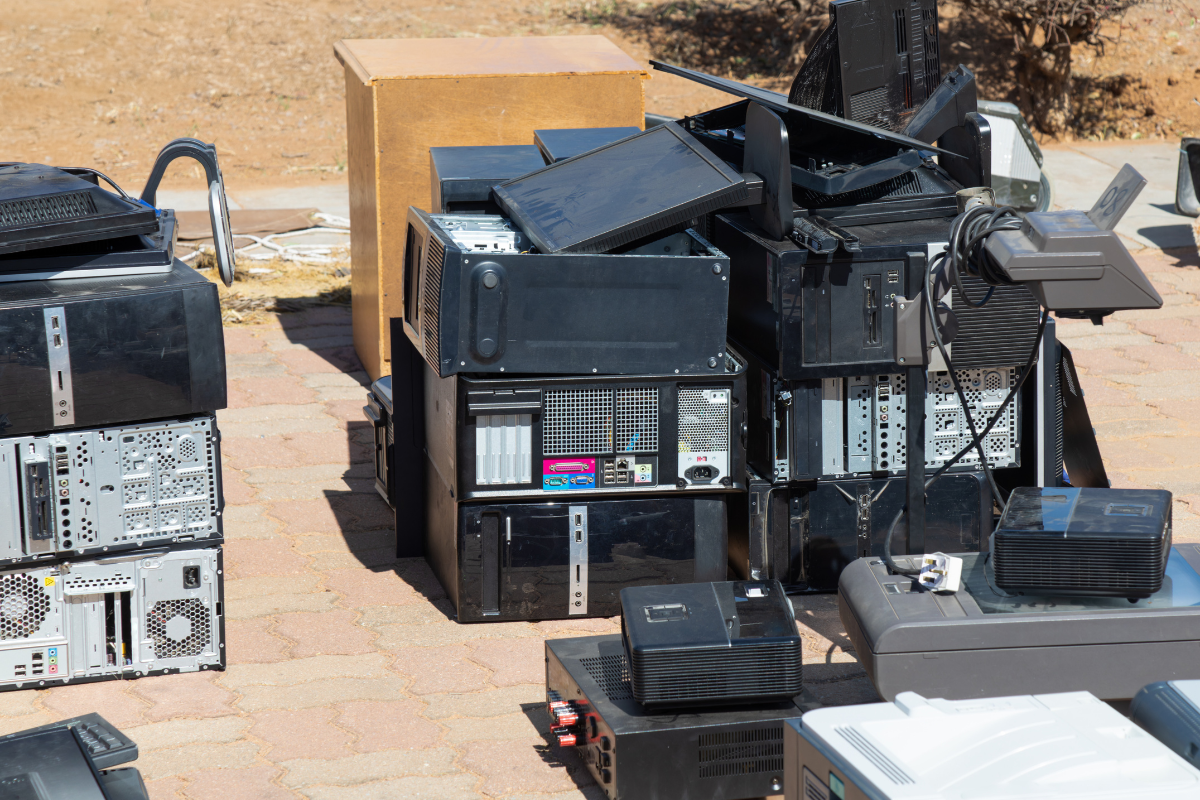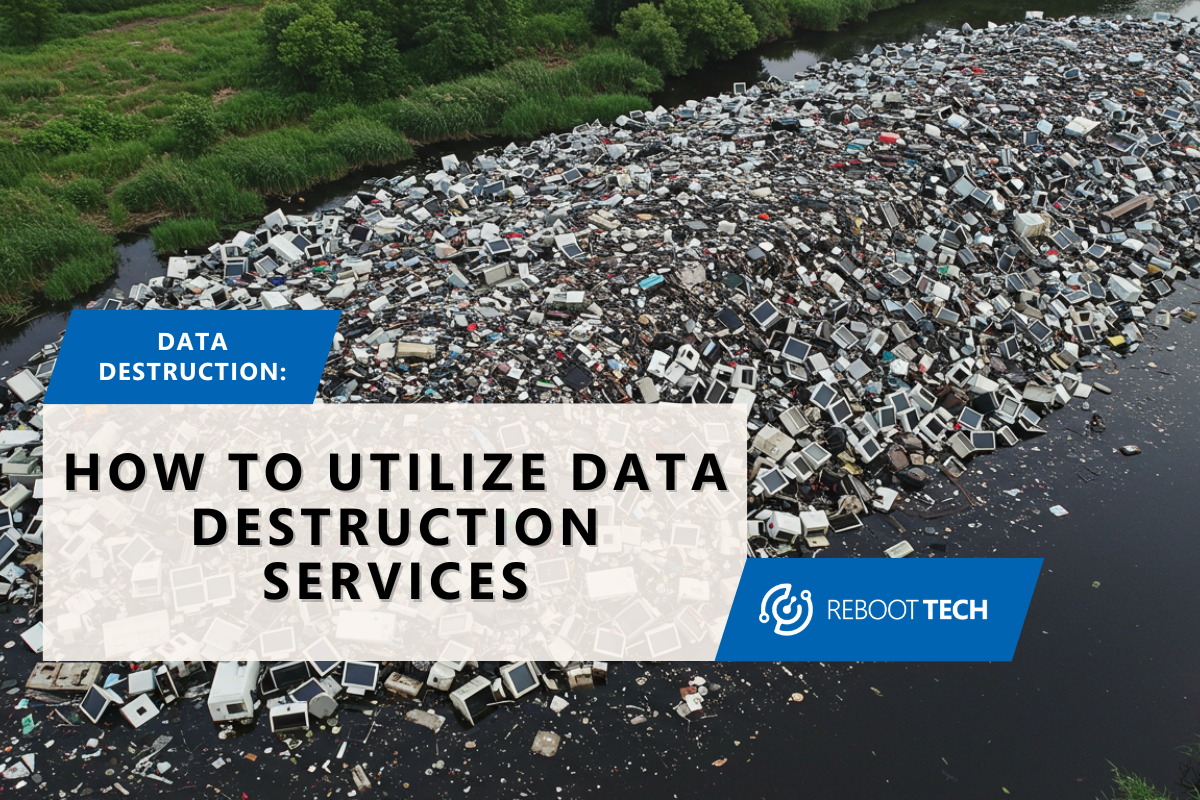
How to Recycle Your Hard Drive Properly
We live in a digital age, where almost every aspect of our lives is connected to electronic devices. As technology continues to evolve, the rate at which we upgrade our devices—especially computers—has increased significantly.
This constant upgrading often leaves us with outdated electronics, particularly hard drives, which contain sensitive information. The question arises: What do we do with old hard drives? Simply throwing them away is not a safe or eco-friendly option.
Recycling hard drives is important for keeping your personal or business data safe. It also helps protect the environment. This article explores the importance of hard drive recycling, outlines the process, and explains how to safely recycle your hard drives. Whether you’re a business owner managing bulk e-waste or an individual responsibly discarding old hardware, this guide helps you navigate the process efficiently.
The Problem With E-Waste
Electronic waste, or e-waste, is one of the fastest-growing waste streams in the world. In 2023, the average U.S. household had 21 connected devices, spanning across 13 different categories. This is a staggering number, and as people upgrade their technology, more and more old electronics, including hard drives, get discarded. Unfortunately, the vast majority of these devices are not recycled properly.
According to statistics, e-waste makes up 70% of the world’s overall toxic waste. Shockingly, only about 12.5% of this e-waste is recycled, while 85% of it ends up in landfills or is incinerated. This improper disposal releases harmful toxins into the environment, which contributes to air pollution and health risks for humans.
Additionally, these devices contain valuable materials like precious metals that could be repurposed. By recycling e-waste, we not only reduce environmental damage but also conserve resources.

Importance of Data Security
One of the major concerns people have when recycling hard drives is securing your personal data, and keeping up with proper information security. In 2023 alone, there were 6.06 billion malware attacks globally. The number of data breaches in the U.S. has risen, with over 3,200 incidents compared to only 447 in 2012. This alarming rise in data breaches means that your sensitive personal information or business data could be at risk if your hard drive isn’t wiped properly before recycling.
Every hard drive contains a treasure trove of information, from emails and photos to passwords, financial data, and other confidential information. If not disposed of securely, data can fall into the wrong hands, even from drives you thought were erased. This is why it’s critical to ensure that hard drives are wiped clean or physically destroyed before recycling them. The goal is to make it impossible for anyone to access the data for your peace of mind.
How Do I Safely Recycle My Hard Drives?
Given the importance of data security, how can you safely recycle your hard drives? Here are three effective methods for ensuring your information remains protected while contributing to environmentally responsible e-waste disposal:
1. Data Wiping: This method involves using specialized software to overwrite the data on the hard drive multiple times. Software programs like DBAN (Darik’s Boot and Nuke) or professional data destruction services can ensure that the data is overwritten to the point where it becomes irretrievable. This allows the hard drive to be reused without the risk of data breaches.

2. Degaussing: Degaussing uses a strong magnetic field to disrupt the magnetic storage of a hard drive, making it impossible to retrieve any stored data. This is often used by companies and government institutions to safely and efficiently destroy sensitive information stored on multiple hard drives. While effective, degaussing renders the drive unusable afterward.
3. Physical Destruction: One of the most foolproof ways to ensure that your data cannot be recovered is through physical hard drive destruction. This can involve shredding the drive into tiny pieces or drilling holes through the disk platters. While data shredding is often used for highly sensitive data, the hard drive will be completely unusable after destruction.
What To Do Before Recycling Your Hard Drive
Before recycling your hard drive, there are several important steps you should take to protect your data and ensure a smooth process:
- Backup Your Data: Before wiping or destroying your hard drive, make sure you have backed up all the important data you may need. Transfer any files, photos, or important documents to a secure storage solution, like an external drive or a cloud-based service.
- Encrypt Your Data: If you’re concerned about data security before recycling, consider encrypting your hard drive. Encryption ensures that if any data does remain, it cannot be easily accessed without the proper encryption key.
- Format the Drive: After encrypting, you can also format the drive to ensure that the data is no longer easily accessible. While formatting alone won’t completely erase all data, it’s a step in the right direction before wiping or physically destroying the drive.
Working with a Certified E-Waste and ITAD Company
If you have bulk e-waste or multiple hard drives to recycle, especially if you’re a business, working with a certified e-waste recycling company is your best option. Companies that offer IT Asset Disposition (ITAD) services, like Reboot Tech, specialize in the safe disposal of electronic waste, data destruction, and recycling.
Certified ITAD companies follow strict environmental and security standards, often providing a certificate of destruction to guarantee that your data has been securely wiped or destroyed. They handle everything from pickup to proper disposal, ensuring compliance with data privacy laws such as HIPAA, GDPR, and more. By working with a certified recycler, businesses can streamline their e-waste disposal while ensuring complete data security.

Secure and Sustainable Recycling
Recycling your hard drives doesn’t have to be a daunting task. By following secure methods such as data wiping, degaussing, or physical destruction, you can safely protect your sensitive information while doing your part to reduce e-waste. Before recycling, make sure to backup and encrypt your data for extra security.
Partnering with a certified e-waste and ITAD company ensures that the entire process is not only environmentally friendly but also guarantees data security. Reboot Tech, for instance, offers services tailored to businesses and individuals alike, ensuring that all hard drives are recycled in compliance with the highest security and environmental standards.
In doing so, you not only clear up space and upgrade your technology without fear of data breaches, but you also contribute to a healthier environment by reducing e-waste.





